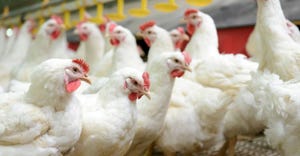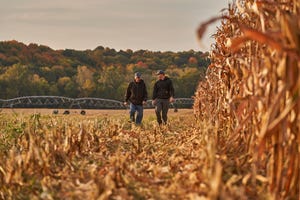Food facility registration requirements provide clarity for direct marketing farms and food enterprises.

The Food & Drug Administration released Wednesday a final rule amending the Food Safety Modernization Act (FSMA) requirements for food facility registration.
Food facilities that manufacture and process, pack or hold food for consumption in the U.S. are required to register with FDA, and the final rule amendments that the agency released add new provisions to the current regulations to codify certain provisions of FSMA that were self-implementing and effective upon enactment of FSMA.
Those provisions include the requirements of an email address for registration, renewal of registration every two years and that all food facility registrations must contain an assurance that FDA will be permitted to inspect the facility at the times and in the manner permitted by the Federal Food, Drug & Cosmetic Act.
In addition, the final rule adds certain new requirements that will improve the food facility registration system. All food facility registrations are required to be submitted to FDA electronically, although this requirement does not take effect until Jan. 4, 2020.
The local and regional farm and food community has long awaited this final rule, which provides much-needed clarity for direct marketing farms and food enterprises, preventing undue regulation of these businesses.
By redefining the term “retail food establishments,” FDA provides clear distinctions between which farms and related businesses are subject to “food facility” registration under the Preventive Controls Rule and which are not. Thanks to this new language, farmers and small food enterprises primarily selling value-added products directly to consumers can now rest assured that they are not subject to food facility registration requirements or regulations, the National Sustainable Agriculture Coalition (NSAC) said in a statement.
“For family farmers, one of the most concerning things about the new FSMA rules has been this confusion over classification of farms and registration requirements,” NSAC policy specialist Sophia Kruszewski said. “Conflicting and misleading guidance on farms that do or do not qualify as retail food establishments has been the order of the day for over a decade. Congress settled the matter in FSMA in 2010. We are pleased to see FDA finalize this long-overdue clarification and, on first glance, are optimistic that the final rule reflects the intent of Congress to shield local food producers who directly market to consumers from ill-fitting federal requirements.”
In FSMA, Congress clarified that sales through direct-to-consumer platforms like roadside stands, farmers markets and community-supported agriculture (CSA) operations were included within the exemption for retail food establishments. This amendment was sponsored by Sen. Jon Tester (D., Mont.) and former Sen. Kay Hagan (D., N.C.) and was strongly backed by NSAC.
The clarification serves two important purposes.
First, it reinforces that CSAs, farmers markets, roadside stands and other direct-to-consumer operations that sell the majority of their food directly to consumers are not food facilities, do not have to register with FDA as facilities and, therefore, are not subject to the Preventive Controls Rule.
Second, it clarifies that the location of the direct sales does not trigger the facility definition. For example, delivering a CSA box to an off-farm location where customers could pick up their boxes would not make that location a “facility.” Neither, as the final rule makes clear, would use of an off-farm commercial kitchen to process value-added goods.
About the Author(s)
You May Also Like





